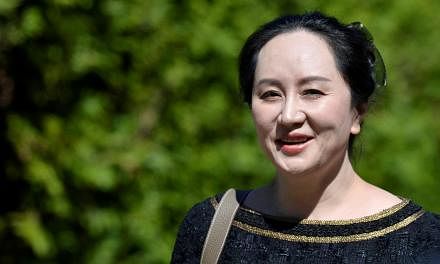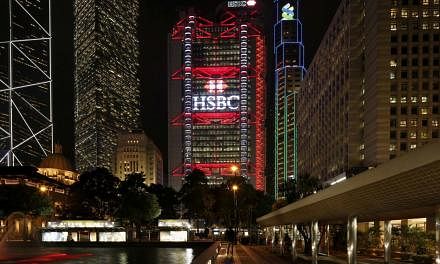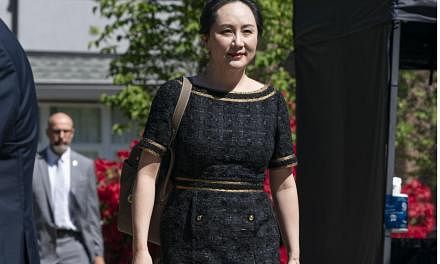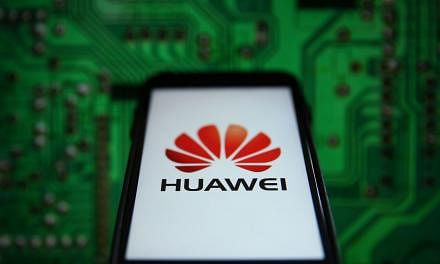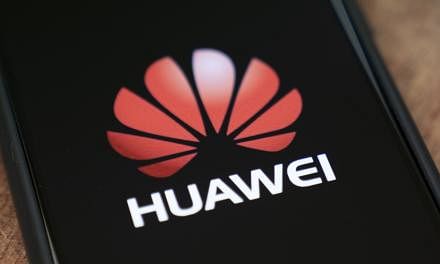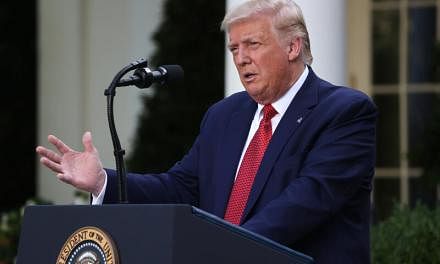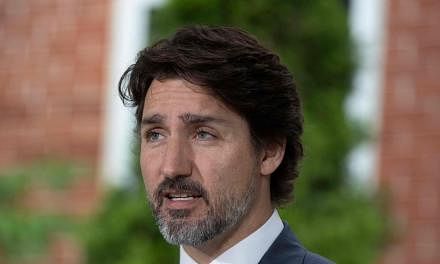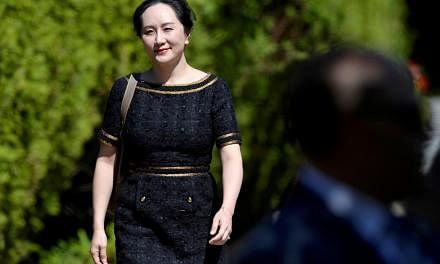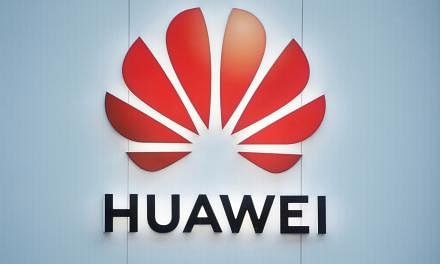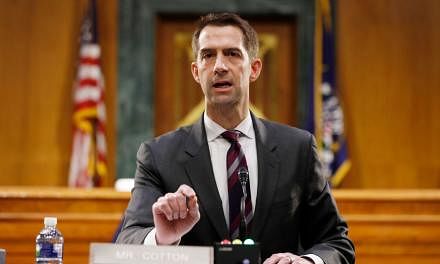NEW YORK (BLOOMBERG) - US authorities managed to get their counterparts in Canada to arrest a senior executive of Huawei Technologies Co, China's largest smartphone and communications equipment-maker, for allegedly violating American sanctions on selling technology to Iran.
Now comes the hard part.
A hearing on Friday (Dec 7) in Vancouver is just the start of a legal process in Canada that could end with Huawei chief financial officer Meng Wanzhou being sent to the United States to stand trial.
Even though the North American neighbours have a longstanding treaty governing extradition, it can take months, even years, for a defendant to be handed over, if at all.
Reaching into another country to apprehend a citizen of a third country on sanctions violations is rare, if not unprecedented, which could further complicate the legal proceedings, according to extradition experts and attorneys.
Her arrest while changing planes in Vancouver last Saturday has already sparked protests by the Chinese government, which says Ms Meng committed no crime.
"This is an extremely aggressive move in this kind of a case against this kind of defendant," said Mr Daniel Silver, a partner at Clifford Chance in New York who previously led cross-border investigations as a US federal prosecutor.
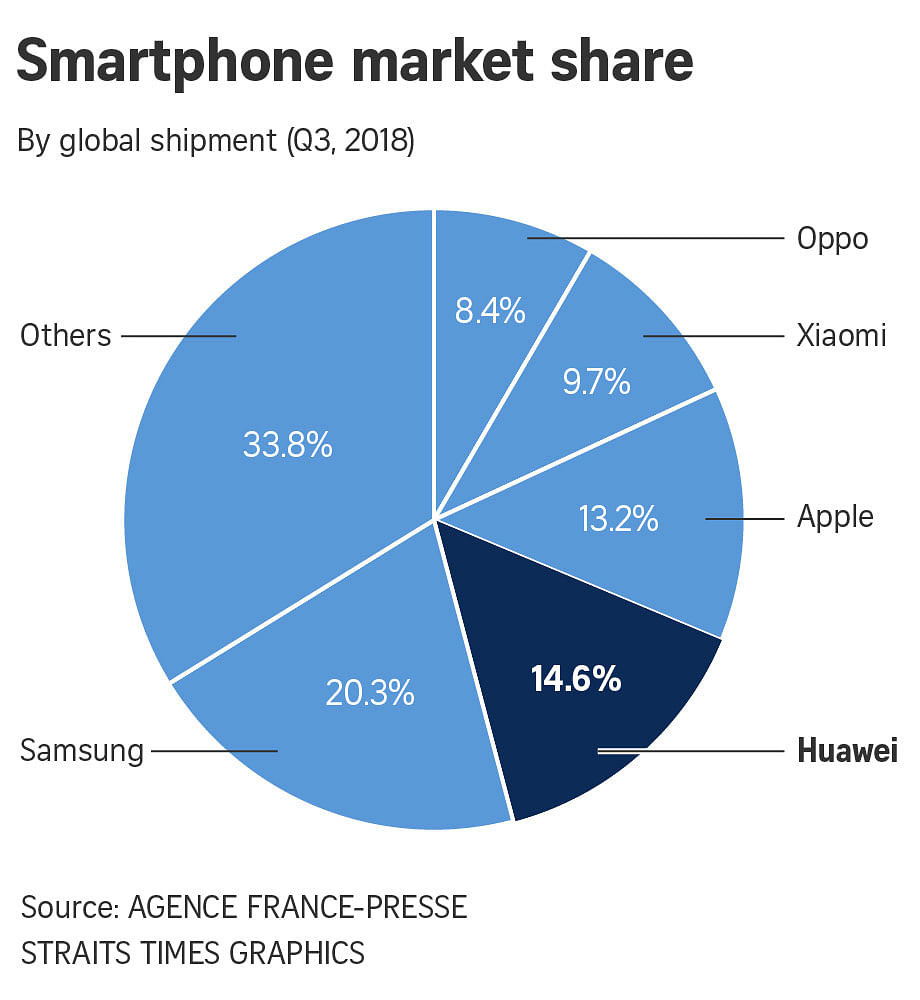
The next step in the process is the Friday hearing to determine if she is a risk to flee prosecution.
The judge could order Ms Meng to remain detained. If not, and bail is set, she probably would be forced to surrender her passport. After that, there would be a separate extradition hearing.
At some point, American authorities will have to reveal at least some of their as-yet-secret evidence to justify the request to have Ms Meng turned over and to show why they believe she committed a crime.
A potentially thornier issue is whether Ms Meng's alleged transgressions were a crime in both the US and Canada.
Canada has an Iranian sanctions policy, but it is less clear if violations are enforced through the country's criminal code.
Sanctions violations are not among the extraditable crimes described in the treaty, though there are provisions for fraud by a corporate officer and receiving proceeds from illegal activity.
"One of the main concepts of any extradition treaty between two sovereigns is dual criminality," said Mr Kan Nawaday, a partner at Venable LLP and former federal prosecutor in New York.
"The country where someone is found is not going to extradite that person to another country if what they did isn't really a crime in the country that has the person."
Ms Meng could fight the request on jurisdictional grounds, arguing that her actions were not covered by US law as a foreign executive doing business in a foreign country with another sovereign nation.
The treaty specifically prohibits extraditions on charges of a "political character", which could give Ms Meng an argument that she is being used as a pawn in the larger trade dispute between the US and China.
NO POLITICS
"Traditionally, DOJ prosecutors base their decisions on the law and the evidence and what's fair, not on political priorities," said Mr Daniel Stein, a partner at Mayer Brown and former criminal chief of the US Attorney's Office in Manhattan.
"It's hard to believe that this case was motivated by politics or recent developments in trade."
Alleged transactions between Huawei and Iran ran through HSBC Holdings, and were flagged to US authorities by the bank's monitor, according to people familiar with the matter. The development was reported earlier by The Wall Street Journal.
It's hard to overstate the significance to China of Ms Meng's arrest: She is the daughter of the Mr Ren Zhengfei, the founder of Huawei, a national champion at the forefront of President Xi Jinping's efforts for China to be self-sufficient in strategic technologies.
While the US routinely asks allies to extradite drug lords, arms dealers and other criminals, detaining a major Chinese executive in this manner is unusual.
Perhaps no company better personifies the perceived trade threat than Huawei. It has overtaken Apple in smartphone shipments and aims to surpass Samsung Electronics while targeting record sales of US$102.2 billion (S$139 billion) this year - more than Boeing Co.
It is shooting for the lead in fifth-generation wireless networks and preparing to take on some of America's biggest chipmakers.
FBI INVESTIGATION
As far back as 2016, the Commerce Department sought information regarding whether Huawei was possibly sending US technology to Syria and North Korea as well as Iran.
The US previously banned ZTE Corp, a Huawei competitor, for violating a sanctions settlement over transactions with Iran and North Korea. That moratorium - since lifted - drove ZTE to the brink of collapse.
It isn't the first time American authorities chased down a wanted Chinese citizen in Canada.
It took two years before the US was able to take custody of Su Bin after his arrest. He eventually pleaded guilty in 2016 to participating in a years-long conspiracy to hack the computer networks of US defence contractors.
"Extradition is a burdensome process," said Mr Robert Anello, Su's attorney and a partner at Morvillo Abramowitz Grand Iason & Anello in New York.
"These international prosecutions now require countries to cooperate much more if they want to enforce their laws, as it relates to business crimes. The procedure takes time - even years."
US and Canadian officials have declined to say why Ms Meng was arrested. The Globe & Mail newspaper reported that she had been arrested on suspicion of violating US trade sanctions against Iran. The investigation was previously reported.
The US has imposed economic sanctions on Iran since a revolution that led to the fall of the Shah of Iran and the taking of American hostages in late 1979. Conspiracy to violate the sanctions carries a term of as long as 20 years in prison, according to a Justice Department website.
Should a judge agree to extradite Ms Meng, she would have multiple chances to appeal against the decision. She also could seek bail during the proceeding, agreeing to live in Canada while the matter is pending in the courts.
"It could go on for a while. There are procedural things that can be attempted by the lawyers on both sides," said law professor Robert Currie of Dalhouse University in Halifax, who specialises in international law and extradition.
"We're going to be talking about this for a long time."

